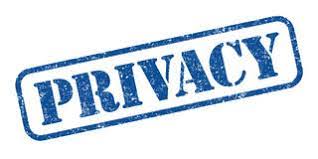How Cyber Command Impacts Civilian Privacy.
Standing at the forefront of cybersecurity defense is U.S. Cyber Command (USCYBERCOM), a military organization tasked with defending the nation in cyberspace. However, its vital role raises critical questions about the potential impact on civilian privacy. While tasked with protecting us, Cyber Command’s activities can inadvertently affect our personal information, creating a complex balance between national security and individual rights.
Cyber Command’s Role and the Potential for Privacy Intrusion
Cyber Command operates in a complex environment, engaging in activities that range from defending military networks to conducting offensive operations against adversaries. This involves collecting, analyzing, and utilizing vast amounts of data to identify threats and vulnerabilities. The very nature of cyberspace, however, blurs the lines between military and civilian domains. Data breaches by adversaries can compromise personal information. Similarly, Cyber Command’s efforts to identify and neutralize threats could inadvertently involve the collection or analysis of civilian data, even if that is not the primary objective.
Consider a scenario where Cyber Command is tracking a foreign hacker attempting to infiltrate U.S. infrastructure. This tracking could involve monitoring network traffic, which might incidentally capture communications involving U.S. citizens. While the intent is not to target civilians, the process can potentially expose private communications and data. This highlights the inherent tension between national security and individual privacy within the digital realm.
Legal Frameworks and the Balancing Act
Recognizing the potential for overreach, Cyber Command operates within a strict legal framework designed to protect civilian privacy. Key among these is the Privacy Act of 1974, which establishes a code of fair information practices governing the collection, maintenance, use, and dissemination of personally identifiable information (PII) by federal agencies.
The Privacy Act dictates that agencies must:
- Disclose information collected about an individual upon request.
- Maintain accurate and relevant records.
- Establish rules of conduct for handling PII.
- Refrain from disclosing information about an individual without their written consent, subject to certain exceptions (including those relating to law enforcement and national security).
While the Privacy Act provides a crucial safeguard, it also includes exemptions for national security purposes. This allows Cyber Command to conduct its mission effectively, but also requires a careful balancing act to ensure that privacy rights are not unnecessarily compromised. Internal policies and oversight mechanisms are crucial to ensure that any collection or use of civilian data is strictly limited to what is necessary and proportionate for the specific national security objective.
Private Sector Collaboration: A Necessary Partnership with Privacy Implications
Cyber Command cannot operate in isolation. Protecting the nation’s critical infrastructure requires close collaboration with the private sector, which owns and operates much of that infrastructure. This partnership involves sharing threat intelligence, developing best practices for cybersecurity, and even collaborating on defensive measures.
While these partnerships are essential for national security, they also raise concerns about data sharing and potential privacy violations. The government’s access to private sector data, even for defensive purposes, can create opportunities for misuse or unintended exposure of personal information. To mitigate these risks, strong contractual agreements, clear data sharing protocols, and robust oversight mechanisms are essential. These agreements must define the permissible uses of data, limit data retention periods, and ensure compliance with privacy laws.
Accessing Your Records and Holding Cyber Command Accountable
Transparency and accountability are crucial for maintaining public trust in Cyber Command’s operations. U.S. citizens and legal permanent residents have the right to access their personal records held by Cyber Command, subject to certain national security exceptions. This right is enshrined in the Privacy Act and allows individuals to understand what information is being collected about them, how it is being used, and to challenge any inaccuracies.
To access your records, you can submit a Freedom of Information Act (FOIA) request to Cyber Command. This process allows you to formally request information about yourself and to receive a response within a specified timeframe. While access may be limited for national security reasons, the FOIA process provides a valuable mechanism for ensuring transparency and holding Cyber Command accountable for its actions.
Conclusion: Navigating the Privacy-Security Tightrope
Cyber Command’s role in protecting the nation from cyber threats is undeniably vital. However, its operations inherently raise questions about the potential impact on civilian privacy. Navigating this complex landscape requires a delicate balance between national security and individual rights.
By understanding the legal frameworks that govern Cyber Command’s actions, promoting transparency through mechanisms like FOIA, and fostering responsible data sharing practices with the private sector, we can strive to protect both our nation and our individual liberties in the digital age. Continuous vigilance, robust oversight, and ongoing dialogue are crucial to ensuring that Cyber Command fulfills its mission without unduly infringing upon the privacy of U.S. citizens.







